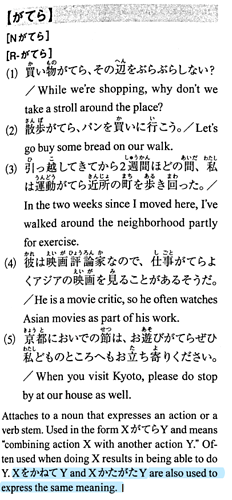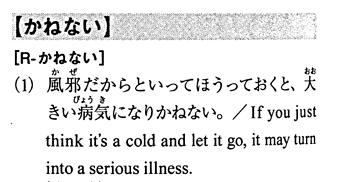At the top it says “spread across (usually 2 different activities or thought processes)” so maybe they meant in the sense that it’s used in the を兼ねて grammar point? Still seems difficult to phrase that in a way that uses “spread across”…
There’s one meaning that jisho and weblio don’t list, which is “to extend over a long period of time or over a long distance”. That one is closer, but as far as I know this meaning doesn’t exist in modern Japanese. In classical Japanese though, it was apparently possible to use 兼ねて like modern にわたって.




